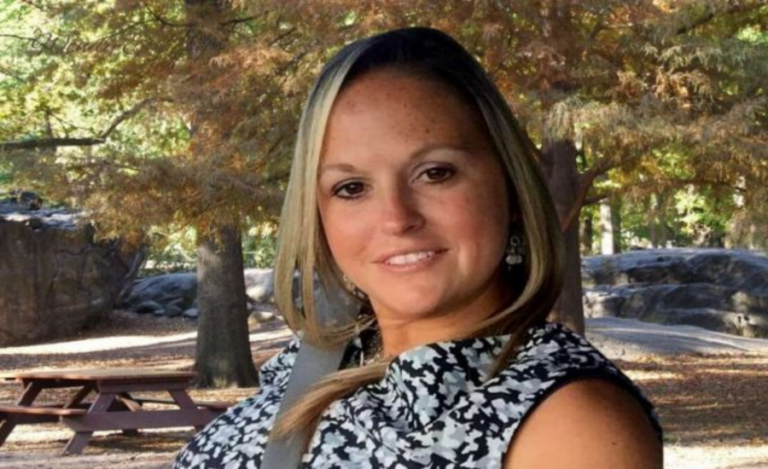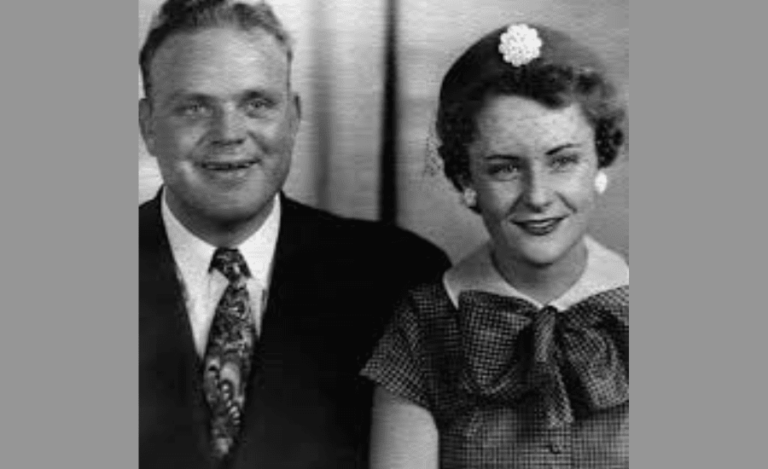The Legacy of Abraham Quiros Villalba: Explained
Abraham Quiros Villalba is a name that resonates within the annals of history as a figure whose legacy has left an indelible mark on society. His contributions spanned various fields, including politics, social reform, education, and cultural preservation. Through his tireless efforts, Villalba became a beacon of hope and progress for his community and beyond. Furthermore, this article delves into the life, achievements, and enduring legacy of Abraham Quiros Villalba, exploring the many facets of his influence and the lasting impact he has had on the world.
Early Life and Background
Childhood and Family
Abraham Quiros Villalba was born into a humble family in a small town. His parents, who were deeply rooted in traditional values, instilled in him a sense of duty and responsibility from a young age. Growing up in a close-knit community, Villalba was exposed to the struggles and aspirations of the people around him. Furthermore, this early exposure to the realities of life shaped his worldview and ignited a passion for social justice and reform.
Furthermore, Villalba’s childhood was marked by a strong emphasis on education. His parents, despite their limited means, ensured that he had access to the best education possible. Furthermore, they believed that knowledge was the key to empowerment, and this belief became a guiding principle in Villalba’s life. He excelled in his studies, demonstrating a keen intellect and a deep curiosity about the world around him.
Education and Early Influences
Villalba’s formal education began in the local schools of his hometown, where he quickly established himself as a promising student. His academic prowess earned him a scholarship to a prestigious university, where he pursued a degree in political science. It was during his university years that Villalba was exposed to the works of great thinkers and philosophers, which further fueled his passion for social reform.
At university, Villalba became actively involved in student organizations and political movements. Furthermore, he was particularly inspired by the writings of thinkers who advocated for equality, justice, and the empowerment of the marginalized. These ideas resonated deeply with Villalba, and he began to see himself as a catalyst for change in his own society.
One of the most significant influences on Villalba’s early life was a mentor he met during his university years. This mentor, a seasoned activist and scholar, recognized Villalba’s potential and took him under his wing. Furthermore, through their discussions and collaborative work, Villalba honed his understanding of the social and political dynamics of his time and developed a vision for the future of his community.
Political Career and Social Reform
Entry into Politics
Abraham Quiros Villalba’s entry into politics was driven by a deep sense of duty and a desire to address the injustices he witnessed in society. Furthermore, after completing his education, he returned to his hometown and began working at the grassroots level, organizing community meetings, and advocating for the rights of the underprivileged. His efforts did not go unnoticed, and he quickly gained a reputation as a tireless advocate for social justice.
Villalba’s political career began in earnest when he ran for a local office. His campaign was centered on themes of equality, justice, and empowerment. He spoke passionately about the need for systemic change and the importance of addressing the root causes of poverty and inequality. His message resonated with the people, and he won the election by a significant margin.
As a local politician, Villalba focused on enacting policies that would benefit the most vulnerable members of society. He championed initiatives aimed at improving access to education, healthcare, and housing. He also worked to promote economic development in his community, recognizing that economic empowerment was essential for lasting social change.
Major Reforms and Achievements
Furthermore, during his time in office, Villalba was responsible for a number of significant reforms that had a profound impact on his community. One of his most notable achievements was the implementation of a comprehensive education reform program. Villalba believed that education was the key to breaking the cycle of poverty and empowering individuals to achieve their full potential. Under his leadership, new schools were built, existing schools were upgraded, and access to education was expanded to include marginalized groups.
Villalba also spearheaded efforts to improve healthcare in his community. He recognized that access to quality healthcare was a fundamental right, and he worked to ensure that healthcare services were available to all, regardless of their economic status. Furthermore, his healthcare reform initiatives included the construction of new clinics and hospitals, as well as programs to train and recruit healthcare professionals.
In addition to his work in education and healthcare, Villalba was a strong advocate for workers’ rights. He championed labor reforms that improved working conditions and provided greater protections for workers. His efforts helped to secure better wages, safer working environments, and stronger labor unions, which in turn contributed to the overall well-being of the working class.
Villalba’s legacy in the realm of social reform is perhaps best exemplified by his work in the area of land reform. He recognized that land ownership was a key factor in economic empowerment, and he implemented policies that redistributed land to those who had been historically disenfranchised. Furthermore, this land reform program not only improved the livelihoods of countless families but also helped to address long-standing social and economic inequalities.
Cultural Preservation and Advocacy
Promoting Cultural Heritage
Abraham Quiros Villalba was deeply committed to preserving and promoting the cultural heritage of his community. He believed that culture was a vital part of a people’s identity and that preserving it was essential for maintaining a sense of continuity and belonging. Throughout his life, Villalba worked to ensure that the rich cultural traditions of his community were passed down to future generations.
One of Villalba’s most significant contributions to cultural preservation was his work in documenting and promoting traditional music, dance, and art forms. He recognized the risk that modernization and globalization posed to these cultural expressions and took steps to protect them. Villalba supported local artists and performers, organized cultural festivals, and established cultural centers to teach and practice traditional art forms.
Furthermore, Villalba also worked to preserve the linguistic heritage of his community. He was a strong advocate for the teaching of indigenous languages in schools and worked to ensure that these languages were recognized and respected. His efforts helped to revitalize languages that were in danger of disappearing and ensured that future generations could continue to speak and understand their ancestral tongues.
Advocacy for Indigenous Rights
In addition to his work in cultural preservation, Villalba was a tireless advocate for the rights of indigenous peoples. He recognized the historical marginalization of indigenous communities and understood the need to protect and promote their rights. Villalba actively ensured that indigenous peoples had a voice in the political process and respected their rights to land, resources, and self-determination.
Villalba’s advocacy for indigenous rights stemmed from his belief in the fundamental dignity and worth of every individual. He saw the struggles of indigenous communities as a reflection of broader issues of social justice and worked to address these issues through his political and social reform efforts. Furthermore, his work in this area earned him the respect and admiration of indigenous leaders and communities, who saw him as a true ally in their fight for justice.
Educational Contributions and Legacy
Establishing Educational Institutions
Abraham Quiros Villalba’s commitment to education extended beyond his political career. He was instrumental in the establishment of several educational institutions that continue to serve his community to this day. Villalba believed that education was the cornerstone of progress and that access to quality education was essential for the development of individuals and society as a whole.
One of Villalba’s most significant contributions to education was the founding of a university in his hometown. Furthermore, this institution, which bears his name, was established with the goal of providing higher education opportunities to students from all backgrounds. Villalba believed that education should be accessible to all, regardless of their economic status, and he worked to ensure that the university offered scholarships and financial aid to students in need.
In addition to the university, Villalba was also involved in the establishment of several primary and secondary schools. These schools were designed to provide a high-quality education that emphasized critical thinking, creativity, and social responsibility. Villalba believed that education should not only impart knowledge but also foster a sense of civic duty and a commitment to social justice.
Long-Term Impact on Education
The educational institutions established by Abraham Quiros Villalba have had a lasting impact on his community and beyond. Many of the students who have passed through these institutions have gone on to become leaders in their own right, carrying forward Villalba’s legacy of social reform and cultural preservation. The university he founded continues to be a center of excellence in education, producing graduates who are well-equipped to contribute to the development of their communities.
Furthermore, Villalba’s influence on education extends beyond the institutions he established. His advocacy for education reform and his emphasis on the importance of education as a tool for empowerment have inspired countless others to take up the cause of education. His legacy in this area is evident in the many educational initiatives and programs that continue to be implemented in his name.
Key Contributions to Education (Bullet Points)
- Founding of the University: Villalba established a university in his hometown, making higher education accessible to students from all backgrounds.
- Primary and Secondary Schools: He was instrumental in setting up schools that emphasized critical thinking, creativity, and social responsibility.
- Scholarship Programs: Villalba ensured that financial aid was available to students in need, making education accessible to all.
- Education Reform Advocacy: Villalba’s work in education reform inspired others to continue his mission of making education a tool for empowerment.
Personal Life and Values
A Man of Principle
Throughout his life, Abraham Quiros Villalba was known for his unwavering commitment to his principles. Furthermore, he was a man of integrity who believed in the importance of honesty, fairness, and justice. These values guided every aspect of his life, from his political career to his personal relationships.
Villalba was also deeply committed to his family. Despite the demands of his public life, he always made time for his loved ones. He believed that family was the foundation of society and that strong family bonds were essential for the well-being of individuals and communities. Villalba’s dedication to his family was evident in the close relationships he maintained with his children, grandchildren, and extended family members.
A Lifelong Commitment to Service
Service to others was a central theme in Villalba’s life. He believed that true fulfillment came from helping others and making a positive difference in the world. This commitment to service was evident in every aspect of his life, from his work in politics to his involvement in charitable organizations.
Villalba was particularly passionate about mentoring young people. He believed that the youth were the future and that it was essential to invest in their development. Throughout his life, he mentored countless young people, providing them with guidance, support, and encouragement. Many of these individuals went on to become leaders in their own right, carrying forward Villalba’s legacy of service and social reform.
Personal Philosophy (Bullet Points)
- Integrity and Honesty: Villalba was known for his unwavering commitment to his principles, always acting with integrity and honesty.
- Family Commitment: Despite his public life, Villalba always prioritized his family, believing that strong family bonds were essential for a healthy society.
- Service to Others: Villalba’s life was characterized by a deep commitment to service, particularly in mentoring young people and helping those in need.
The Enduring Legacy of Abraham Quiros Villalba
Influence on Modern Society
The legacy of Abraham Quiros Villalba continues to influence modern society in profound ways. Furthermore, his contributions to social reform, education, and cultural preservation have had a lasting impact on his community and beyond. Villalba’s work laid the foundation for many of the social and political advancements that we see today, and his ideas continue to inspire new generations of leaders and activists.
Villalba’s influence is particularly evident in the ongoing efforts to promote social justice and equality. His work in areas such as education, healthcare, and workers’ rights set the stage for many of the reforms that have taken place in these areas over the years. The principles he championed, such as the importance of education, the dignity of labor, and the need for cultural preservation, remain relevant today and continue to shape public policy and social movements.
Commemoration and Honors
People have honored Abraham Quiros Villalba in numerous ways in recognition of his contributions. They have named streets, schools, and public buildings after him, and his life and work have inspired books, documentaries, and academic studies. Annual events and celebrations also commemorate Villalba’s legacy, honoring his memory and continuing his work.
One of the most significant honors bestowed upon Villalba was the establishment of a foundation in his name. This foundation, which is dedicated to promoting education, social justice, and cultural preservation, continues to carry forward Villalba’s mission. Through scholarships, grants, and community programs, the foundation works to empower individuals and communities, just as Villalba did during his lifetime.
The Legacy in the Hearts of People
While the tangible honors and commemorations are important, perhaps the most enduring aspect of Abraham Quiros Villalba’s legacy is the impact he had on the lives of the people he touched. Villalba’s work improved the lives of countless individuals, providing them with opportunities for education, healthcare, and economic empowerment. Furthermore, his advocacy for social justice gave a voice to the marginalized and inspired others to take up the cause of equality and fairness.
Villalba’s legacy lives on in the hearts of those who knew him and those who have been inspired by his work. His example serves as a reminder of the power of one individual to make a difference and the importance of living a life dedicated to service, justice, and the betterment of society.
Conclusion
Abraham Quiros Villalba was a man of vision, integrity, and unwavering commitment to the principles of justice and equality. His legacy, built on a foundation of social reform, education, and cultural preservation, continues to inspire and guide us today. Furthermore, Villalba’s life is a testament to the power of education, the importance of cultural heritage, and the necessity of fighting for the rights of the marginalized. His work has left an indelible mark on society, and his legacy will continue to influence future generations for years to come.






